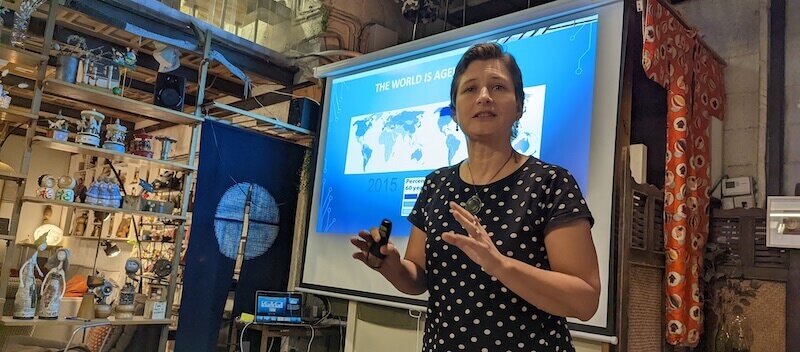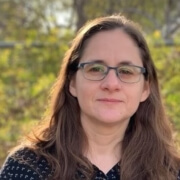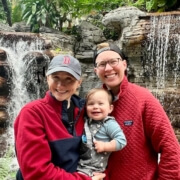Pilot Project for Global Aging Success? New Wellness Director at Assured Allies Thinks Big
After twenty years of working passionately in the field of dementia and aging in the non-profit sector, new Wellness Director Dr. Michal Herz selected Assured Allies, a fast-moving insurtech company, as one of the best ways to instantiate a global pilot project for successful aging.
One month on the job as Wellness Director, is it too early to describe your vision for your role at Assured Allies?
It’s an emerging role. My main role is to look at the current Age Assured program — which helps older adults with long-term care insurance to age successfully in their homes for a longer period of time before they require institutional care — and pull together existing learnings so that, from a vision point of view, we can take the product forward. It’s a good moment to come on board because the company already has a stable product clinically and technologically as well as a team of professionals forward-facing with our members. We are still learning a lot and the growing number of insurance carriers who have contracted with us — with a combined total of 20,000 policyholders — will allow us to draw more and more powerful inferences that enable us to scale in a very smart way.
Given your background in academia and the non-profit sector, your arrival here seems like an especial validation of what I’ve heard many say, that they chose Assured Allies because the company’s business model is aligned with its mission to do real good in the world.
I have been in the field of aging my whole career, celebrating 20 years this December. Nineteen of those years I worked in the non-profit sector across a variety of roles, from academic research to project management to policy work. Assured Allies is the first time that I’ve seen a business combine the speed, funding, and technological abilities of a for-profit with the systematic and altruistic thinking of a non-profit. The combination is fascinating. I was tired of big organizations that move slowly.
I also think there’s a unique opportunity for Assured Allies, which operates mainly in the United States, to be a kind of catalyst for other countries, or a global pilot project.
How so?
I spent a lot of my career in the U.K., Israel, and at the World Health Organization (WHO), and the philosophy — how we perceive human rights, caregiving, and healthcare — is very different in the United States. The private sector plays a much bigger role than in other countries. As a for-profit start-up, we can move quickly and take calculated risks on a smaller scale than a government can. And it’s a blessing that private insurance carriers in the United States have the money to see if our model of long-term care policyholder engagement and non-medical intervention works. And ultimately there’s no reason why a government wouldn’t decide to adopt our service — they’re aspiring to do the same things. It’s what everybody all over the world is saying they want, and research globally supports the idea that aging in place is the best option for individuals and society.
What makes you confident that Assured Allies will succeed at finding a way to help people age in a healthier way and to finance longevity that can be adopted by governments around the world?
The field of elder care is often not very data driven, and Assured Allies is very data driven. The fact that it has invested considerable resources in its proprietary predictive analytics — that apply both to optimizing human-based care and improving actuarial forecasting — is key to its success.
Also, learning here is very open-ended and valued. Data is not only numbers. Qualitative data, transcripts, thematic analysis — talking to people and getting the broader picture — is part of the data as well. Data without context alone can be misleading; it’s how you connect the dots. Anyone who has worked clinically, knows that a lot of the knowledge gleaned from working with patients in healthcare doesn’t manage to get through research publishing to be classified as official data. But it is still really important.
I am looking forward to studying the ample qualitative data we have accumulated so far, listening to transcripts; interviewing the Age Assured Allies [professional aging experts] about their subjective impressions; maybe shadowing home visits to observe our members in the context of their homes and families. A deep dive that can reveal some new types of data that we may want to use in the future. For example, we may know when a claim has been activated but what is the story before that, in the months leading up to that claim? “A fall” for example is often a lagging indicator, not a prime cause of decline.
Do you think as a society we are in denial about aging?
Yes, as a culture we avoid and push away deterioration and death, and the denial costs us. For example, the vast majority of people want to die in their own beds, but in high income countries most die in the ambulance or in the hospital. Between point A and point B, we’re getting something wrong. Data from Israel shows that health expenses in the last three weeks of life are equivalent to all health expenses up to that point. In effect, in many cases we might be using resources incorrectly. People often reflect on how painful the last days of a family member’s life are with an over medicalised approach to end of life. To be clear, I’m not saying we should withhold care; I’m asking that we get better at making late-in-life decisions. In the U.K. caregiving facilities get rated by how many residents achieve a good death. Part of their job is to help people to plan for their death and be ready for it, to think ahead about pain management, infection control and communicating with relatives, decide if and when they want a DNR, or do-not-resuscitate order. Facilitating those timely conversations in advance provides people with so much dignity and comfort versus knee jerk reactions in a crisis that they have little control over.
How can Assured Allies help?
What we can do is use our expertise and experience and predictive analytics to help older adults and caregivers map the situation, plan ahead, and then try and finetune so that our members age successfully in place and enjoy the highest quality of life for as long as possible. I’m excited about how I can combine my 20 years of experience in the field with Assured Allies’ predictive analytics to create solutions for people that are backed by large datasets and yet also customized for their particular situation.
![]()








